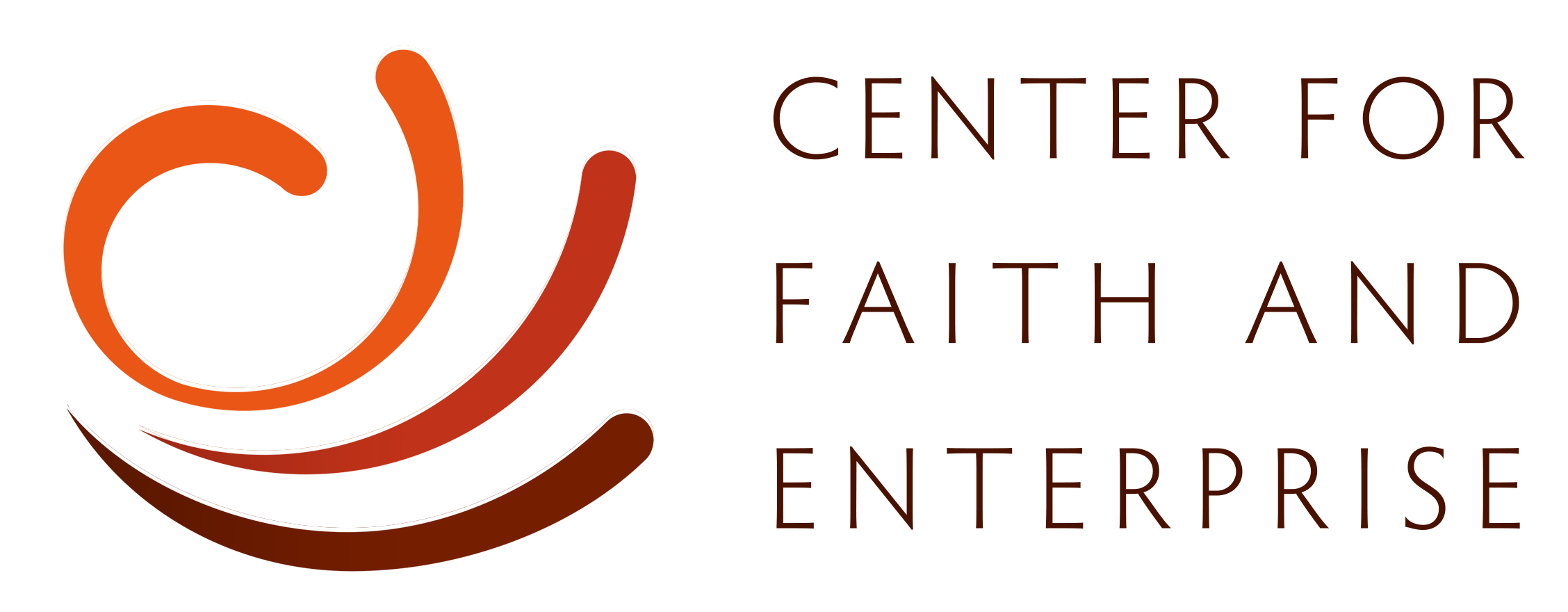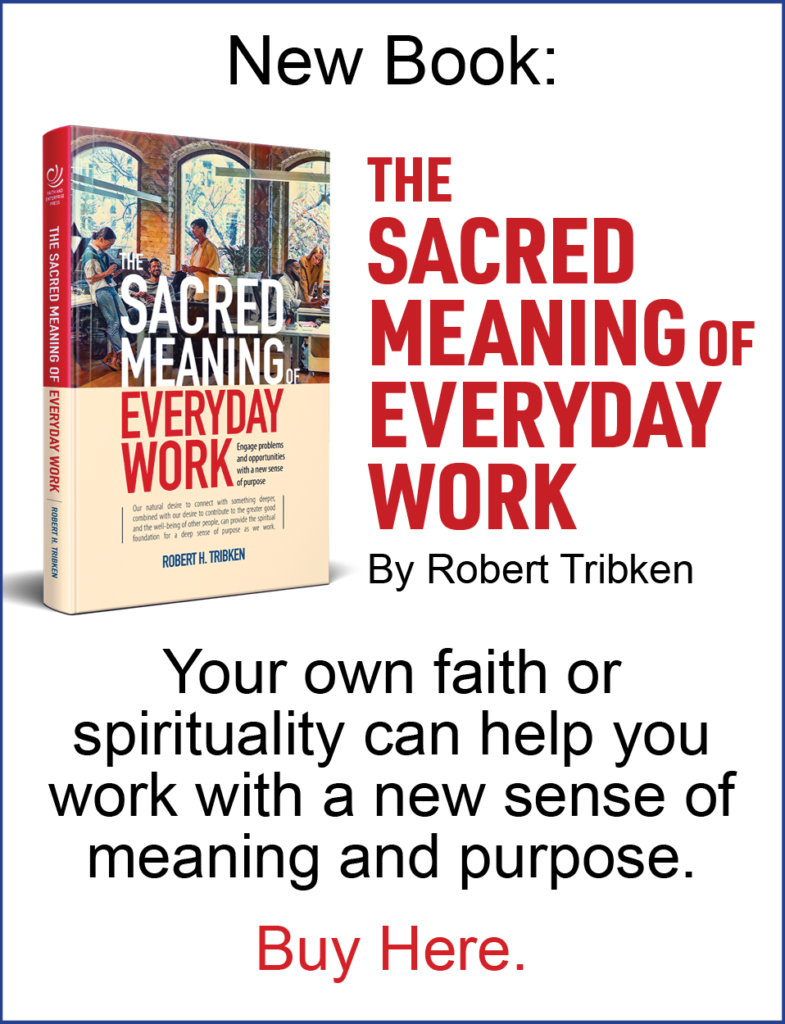Integrity: A Source of Strength in Tough Times
Integrity is one of the most important virtues in our work lives but is not an easy topic to discuss.
A story from the book of Genesis about Joseph and Potiphar’s wife might have some valuable insights for us. In the run-up to the part that I include below, Joseph is sold into slavery by his older brothers. Potiphar, a prominent Egyptian official, buys Joseph and puts him to work. Potiphar is so impressed by Joseph that he makes him the overseer of his house and his fields.
Then trouble emerges. Try to put yourself in Joseph’s position as you read the rest of the story:
Now Joseph was handsome and good-looking. And after a time his master’s wife cast her eyes on Joseph and said, “Lie with me.” But he refused and said to his master’s wife, “Look, with me here, my master has no concern about anything in the house, and he has put everything that he has in my hand. He is not greater in this house than I am, nor has he kept back anything from me except yourself, because you are his wife. How then could I do this great wickedness, and sin against God?” And although she spoke to Joseph day after day, he would not consent to lie beside her or to be with her.
One day, however, when he went into the house to do his work, and while no one else was in the house, she caught hold of his garment, saying, “Lie with me!” But he left his garment in her hand, and fled and ran outside.
When she saw that he had left his garment in her hand and had fled outside, she called out to the members of her household and said to them, “See, my husband has brought among us a Hebrew to insult us! He came in to me to lie with me, and I cried out with a loud voice; and when he heard me raise my voice and cry out, he left his garment beside me, and fled outside.” Then she kept his garment by her until his master came home, and she told him the same story. . .
When his master heard the words that his wife spoke to him, saying, “This is the way your servant treated me,” he became enraged. And Joseph’s master took him and put him into the prison, the place where the king’s prisoners were confined; Joseph remained there in prison.
But the Lord was with Joseph and showed him steadfast love; he gave him favor in the sight of the chief jailer. So the chief jailer committed to Joseph’s care all the prisoners who were in the prison, and whatever was done there, Joseph was the one who did it. The chief jailer paid no heed to anything that was in Joseph’s care, because the Lord was with Joseph; and whatever he did, the Lord made it prosper.
Genesis 39: 6-23
What did doing the right thing cost Joseph? At first glance, it cost him just about everything—his job, his material well-being, his status, and his safety.
But did he not also gain something—perhaps something having to do with integrity?
What Is Integrity?
People often think of integrity as “doing the right thing,” which is generally true. But more specifically, integrity has to do with alignment; it means our values, beliefs, and actions are all aligned. Sometimes, we speak of our words, actions, and beliefs being consistent. Some would say our actions match our words.
With integrity, there is unity in who we are and how we act. This involves acting in accord with our true selves and has a spiritual dimension. When we act with integrity, our authentic self is expressed through our words and actions.
At the end of the story, note that despite Joseph’s low standing and apparent criminality, the jailer saw something special in him, leading him to put great trust in Joseph. The same goes for Potiphar at the beginning of the story. Some might say that what Potiphar and the jailer saw was Joseph’s intelligence, but I think it was his integrity as they saw how Joseph behaved.
There is something about integrity, about alignment, that seems to help us think more clearly and act with more power. When acting aligned with our true selves, we spend less energy on inner conflict and negative internal conversations. We can act with greater wisdom, purpose, and power.
Sometimes, others can see this. Joseph had integrity, and it led to people entrusting him with more and more responsibility, even to the point that Joseph became one of the most powerful people in Egypt several years after this story.
There are no guarantees. Circumstances over which we have no control can overwhelm us, whether we have integrity or not. We also make mistakes, sometimes well-meaning mistakes. Nothing, not even integrity, can guarantee success or even survival.
But rock-solid integrity can at least provide a foundation for weathering the storm and maybe rising again. We have each fallen far short and more often than we like to admit. But we can still endeavor to act with integrity in the present and the future.
In the pressured and sometimes barely controlled chaos of the workplace, there can be a temptation to respond, or to over-respond, to social pressure and to act falsely. Integrity helps us to push back against these pressures and maintain our authenticity.
This is not always easy, especially when challenges to our integrity emerge suddenly, before we are ready, and without warning. To prepare for these challenges, there are two questions you might want to ask yourself:
What are the challenges to your integrity you are most likely to encounter at work?
What are you prepared to sacrifice for the sake of your integrity?
Thinking seriously about these two questions might help you prepare for the challenges that could come your way.
Institutional Integrity
The preceding applies primarily to individual integrity as it pertains to our work and our business relationships. In these situations, it is easy to see how integrity applies to individuals. But what about organizations?
There sometimes seems to be an institutional dynamic that can override individual ethics. Imagine if a social media company executive was your neighbor; what would be the likelihood that they would sneak into your house and secretly plant software in your smartphone to track your movements and shopping behavior without you knowing about it? It’s pretty close to zero. But for some reason, when thinking institutionally, some people are willing to do things they would never countenance in their personal relationships.
Other examples of institutional malfeasance might include a tech company that provides dictators with software that can be used for the suppression of human rights in exchange for market access; governmental bodies and political organizations that run up massive, unsustainable levels of debt that they know will eventually lead to catastrophe; and nonprofits that knowingly mislead their donors to raise more money for their good cause. How do otherwise ethical people find themselves in these situations?
Management scholars Elizabeth Umphress and John Bingham coined the expression “unethical pro-organizational behavior” (U.P.B.) for:
…actions that are intended to promote the effective functioning of the organization or its members (e.g., leaders) and violate core societal values, mores, laws, or standards of proper conduct.
Social relationships and strong organizational identity seem to be key factors. Umphress and Bingham point to the ethical environment of the organization and the person’s loyalty to it. If an organization appears to allow bad behavior that seems to benefit the organization, at least in the short run, then they are likely to get more of it. As people become socialized into an organizational context, their ethical standards can become overlooked or neutralized.
A friend who was the C.F.O. of a $10 billion company periodically spoke to groups of all new hires of his company and told them they must not do anything illegal, immoral, or unethical, even if they thought it was in support of the company’s objectives. If they did so, the company would disavow their actions and terminate their employment. He believed, as do I, that organizations need to send a strong and visible message against such behavior; the temptations and potential for misunderstanding may otherwise cause serious problems.
I do not think the primary cause of institutional moral failure is necessarily the personal financial interest of the decision-makers. A more likely explanation is that when we think of the well-being of others, we naturally think of the people we know, which, in the case of a large institution, usually means the people with whom we work. We therefore have a natural inclination to see the greater good in terms of the institution’s well-being.
Many people who make these decisions probably think of themselves as moral and normally behave with as much integrity in their personal lives as the rest of us. But they can be tempted to make decisions that benefit their organization in ways that require overlooking what would otherwise be their moral standards. And this is not just the leaders. If all our working relationships, or at least the dominant ones, are with people inside the organization, then the social pressure can be intense, and the temptations great, to take care of the institution, our team, first.
The Integrity of the Prophets
The prophets of the Bible stood up against this sort of social pressure. Their mission was to speak what they believed to be the word of God to their society as it was moving in the wrong direction and to do so despite the social and political pressure. These were brave, courageous people. We need to develop the same courage and clear-headed integrity, and I believe our faith or spirituality can play a crucial role in this. Reading and reflecting on the stories in the Bible about people who faced similar or greater challenges can help us keep our eyes open and our courage up.


